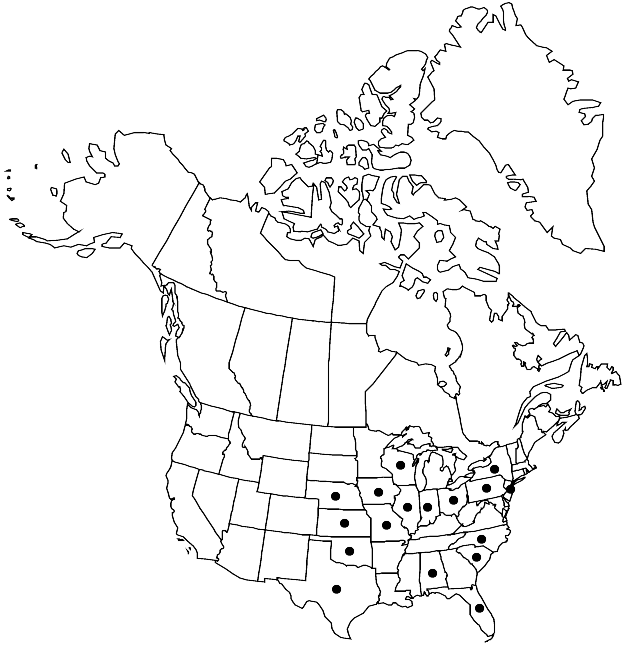Entodon challengeri
Beih. Bot. Centralbl. 17: 32. 1904.
Plants in dense mats, yellow-green to golden brown. Stems to 8 cm, subpinnate, branches complanate-foliate. Leaves erect-spreading, oblong-ovate, 1.2–2 mm (branch leaves slightly smaller); margins plane, entire or with 1 or 2 teeth at extreme apex; apex broadly acute; ecostate or costa double, short; alar region ± abruptly differentiated, 1-stratose, not reaching costa. Sexual condition autoicous. Seta reddish, 0.4–1.5 cm. Capsule cylindric, 1.2–2.2 mm; annulus 2–4-seriate, persistent; operculum obliquely long-rostrate; exostome teeth reddish, external surface densely papillose proximally, finely papillose apically, not perforate; endostome segments densely papillose. Spores 11–15 µm.
Habitat: Bark at base of trees, logs, stumps, rock, soil
Elevation: low to moderate elevations
Distribution

Ala., Fla., Ill., Ind., Iowa, Kans., Mo., Nebr., N.J., N.Y., N.C., Ohio, Okla., Pa., S.C., Tex., Wis., e Asia.
Discussion
Entodon challengeri is characterized by strongly flattened branches, strongly concave, oblong-ovate leaves, a reddish seta, and densely papillose exostome teeth; the endostome is sometimes adherent to the exostome teeth. The species has long gone under the name E. compressus in North America (and Asia). However, it appears as if the original publication of this name by Müller is best interpreted as a new combination of Leskea compressa Hedwig. Unfortunately, that name is a synonym of E. cladorrhizans, and so a later name is used honoring the Challenger Expedition.
Selected References
None.